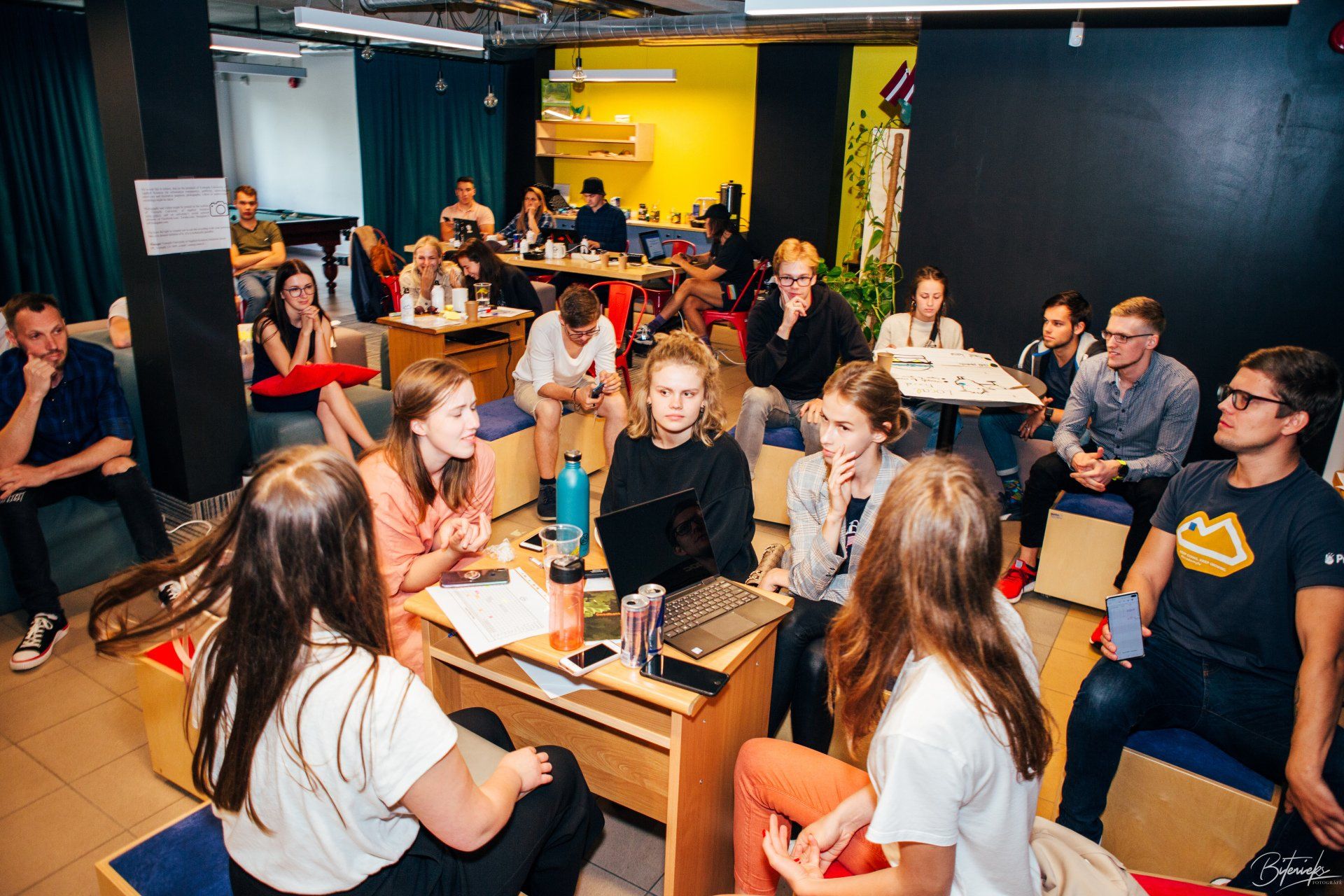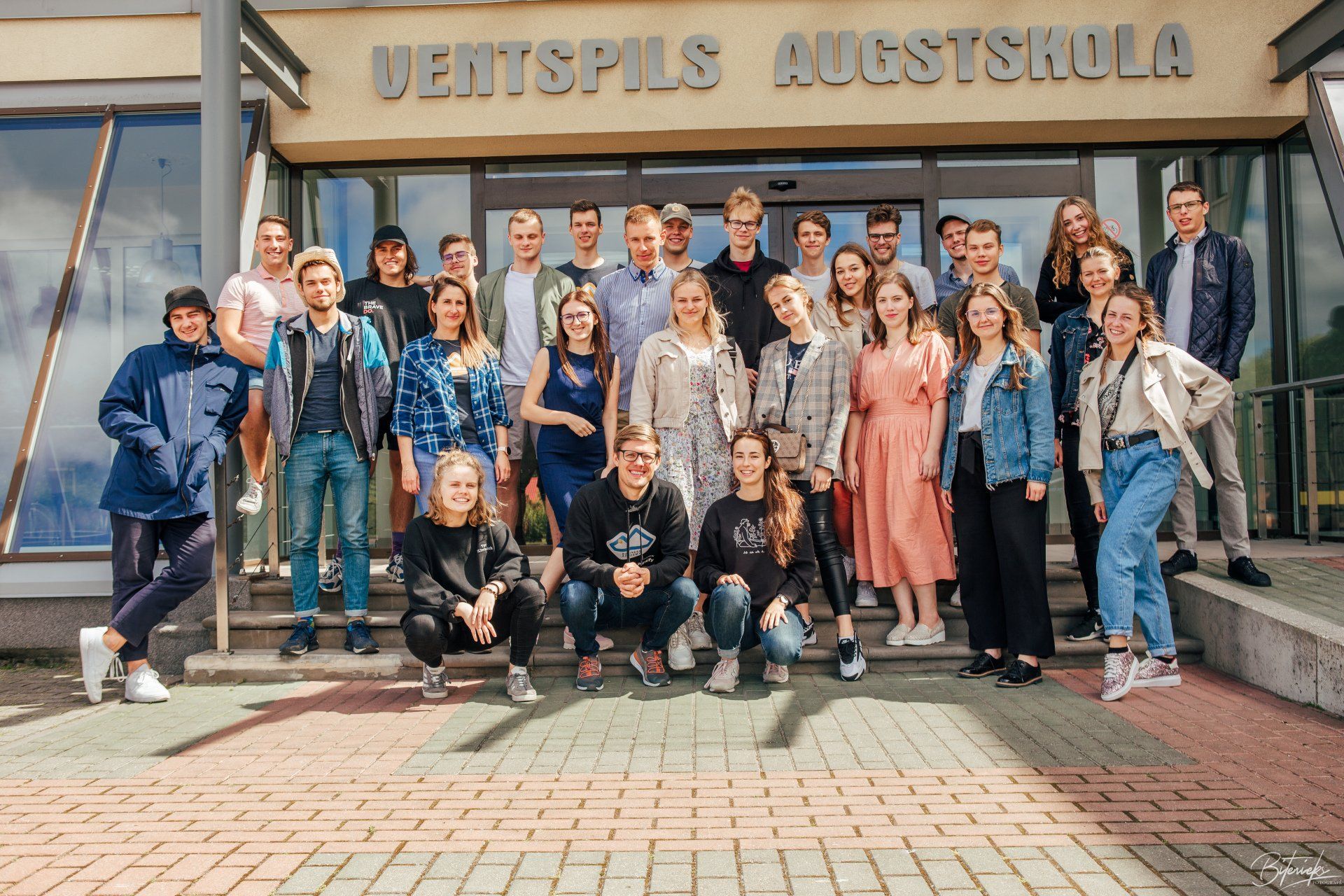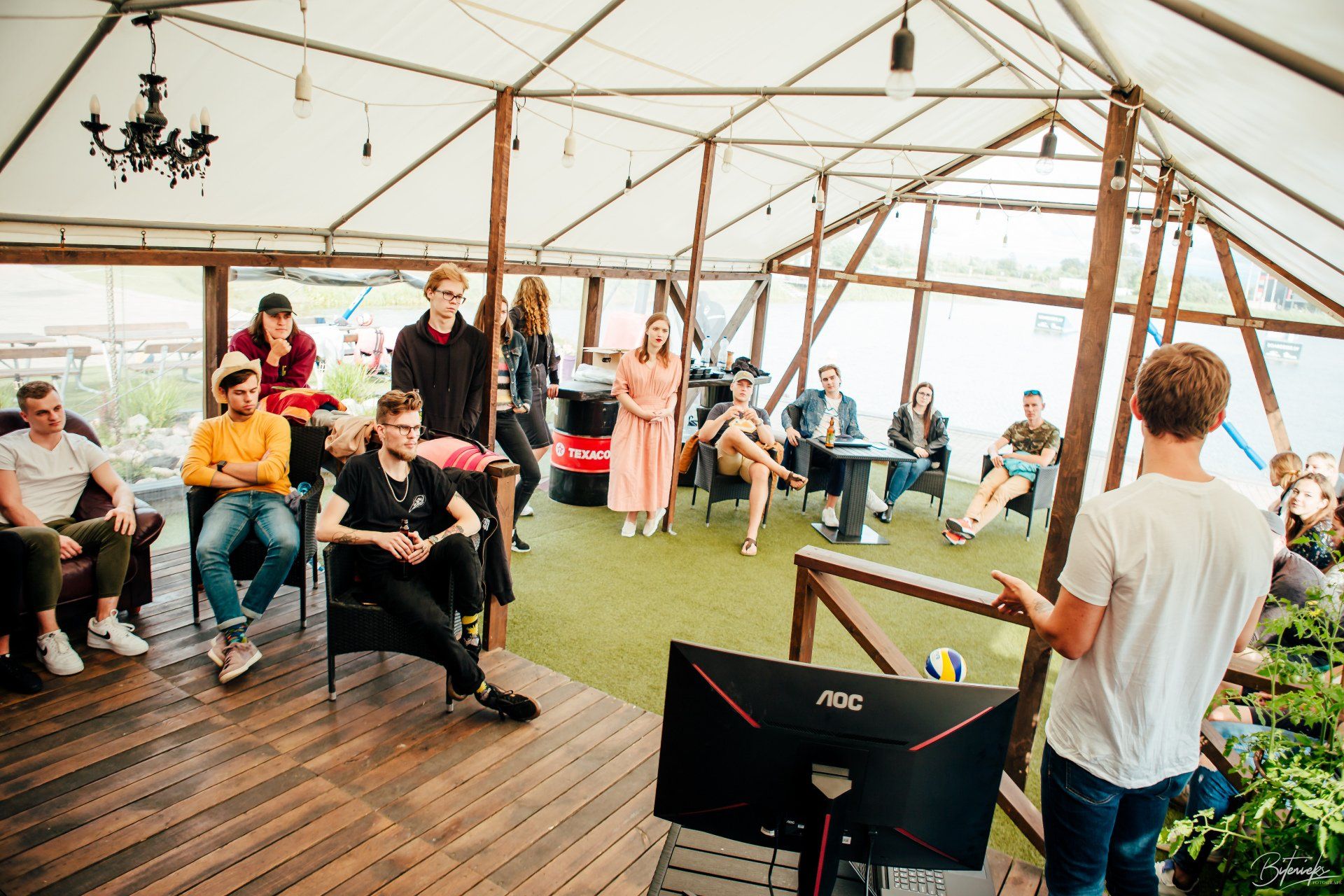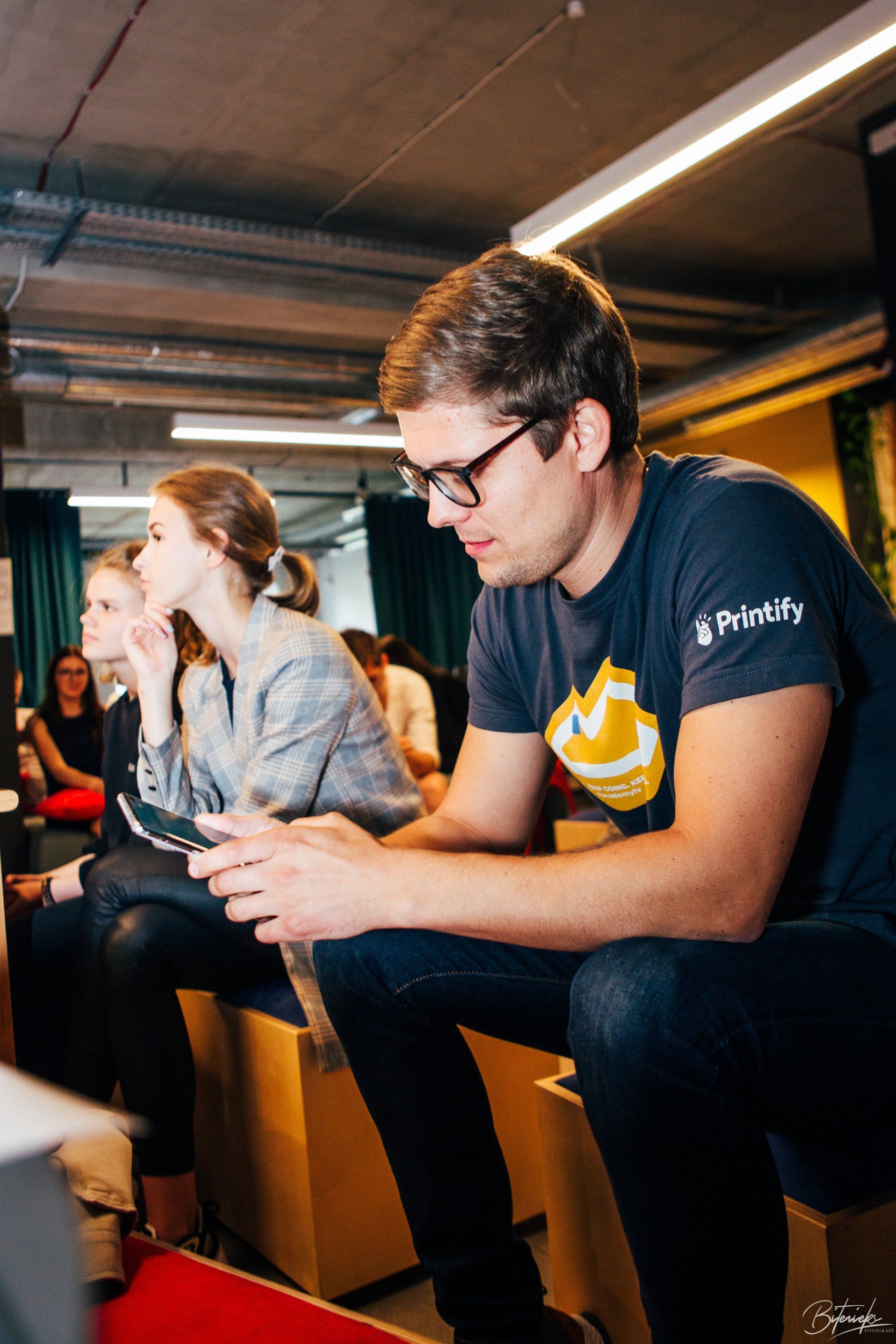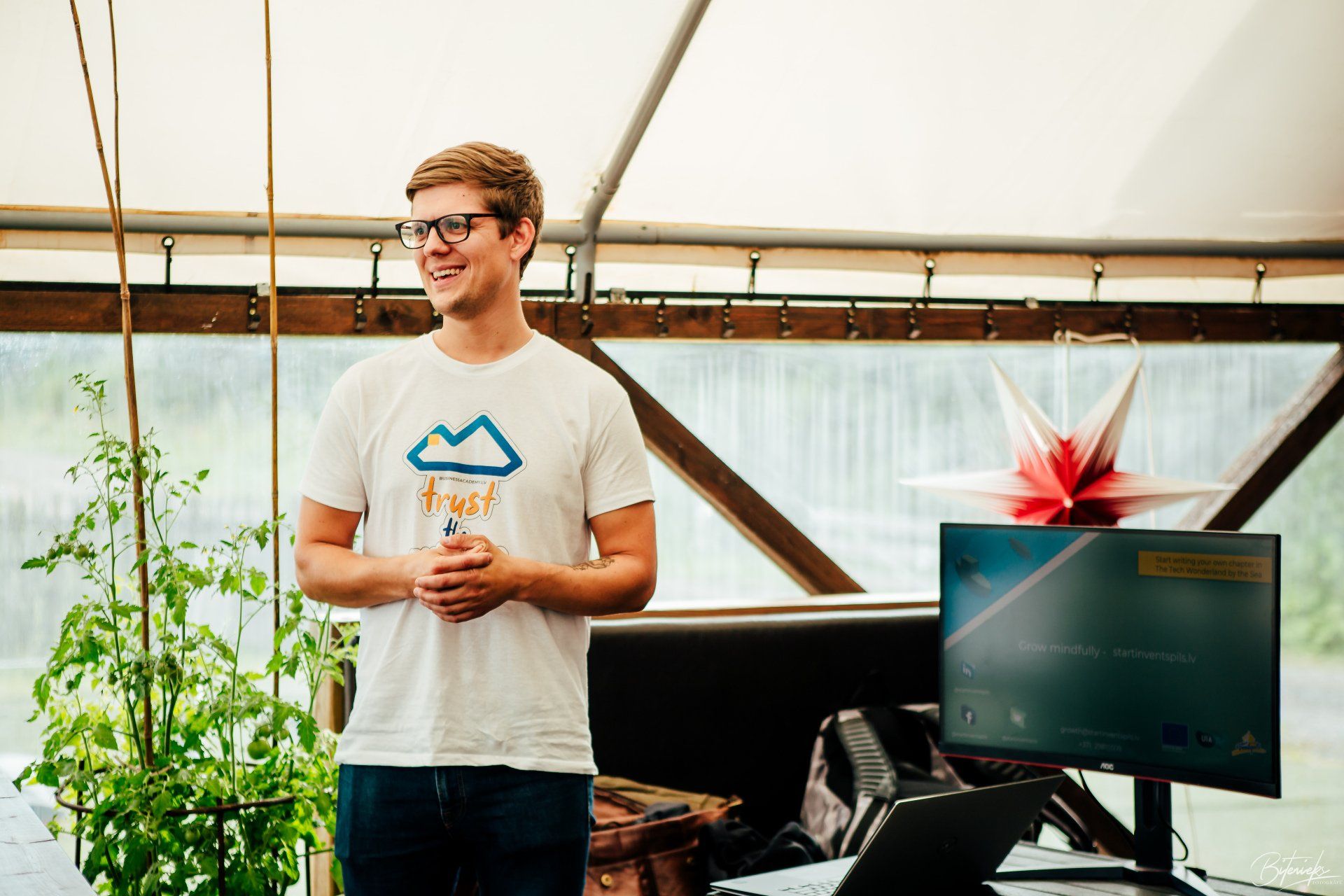One of us: Guntis Čoders
September 22, 2020
Today we want to share an amazing interview with Ventspils University of Applied Sciences Deputy Director and mentor of the Start-Up Management study programme Guntis Čoders. A person who inspires and surprises with his unique approach both in the teaching process and in life. Students of this unique study programme are personalities with high ambitions, courage and strong intuition. So we wanted to find out more about Guntis, how he does so well in his professional life and what is the key to his success in communicating with students.
What were you like in high school?
I was a careless bad boy and did quite a trouble to parents and teachers. Didn't know what I want to do so just went with the flow. I was having F.O.M.O. (Fears Of Missing Out) feeling so I had to be in all the parties :)
What motivates you?
One of the main motivations is to prove to myself and to others that I am able to do it. Another thing that motivates is the feeling of progress and the result itself.
Please tell us about the beginning of the creation of your study program, how did the idea come about, does the previously planned one correspond to the current one?
It started out when University invited me as a representative of the entrepreneurship environment when University was looking to take an existing study program from Finland and adjust it. It looked very promising so we took it and made it even better by adding more technology-focused topics, emotional intelligence topics and the way students are gaining practical experience by creating a good cause digital service agency run by students. I would say 80% are the way we initially thought but at least 20% have changed as we are involving students a lot to improve the program on a daily basis.
Please describe one typical day in your study program!
We meet and spend the first ~30 minutes talking about the overall feeling of the teams and individuals. What does work, what doesn't if there are any problems and what could have been done better? Then we take look on the topics we have to cover during the day / week / course and come up with a real business case / problem which could be solved when applying the topics included in the course to get actual and practical experience making the study process more engaging and useful. Then we let teams to decide the approach, plan the project timeline and tasks and split the responsibilities in the team. After that teams are working on their projects and are getting mentorship during the process. Then we are having a milestone check-in in the middle of the day where teams pitch their progress, approach, problems they face and align if the direction they are working on is the right one. At the end of the day, teams are pitching the end result and getting feedback either it's another check-in if the project is larger and it will take more than 1 day. After that everything starts over. In between, we share insights gained, lessons learned and which stage of the process worked well and which not so well.
What success do you see for your study program and students in the future?
Seeing the progress students have already after the first year of studies where students have understood the wide range of opportunities there are around, have been working on practising the way they approach problems and the way they get to the solutions I am more than sure that they will be successful individuals each in its own way. On top of it, they have huge progress in becoming much more productive, learn how to stay more healthy, achieve higher performance in a sustainable way and achieve mindfulness. That kind of mix of skills and competences is the guarantee of becoming successful.
If students are successful and happy then I see that the study program is successful.
What are your favorite websites, books or other resources?
To quickly follow the IT industry news I have subscribed to Business Insider's "10 things in tech you need to know today" newsletter. For new knowledge to gain I am using Coursera.org and reading some books. Additionally to that once in while I am watching TedX talks and listening to Podcasts like Simon Sinek's podcast.
Can you share some important insights from life that could be helpful to students?
"You can't be everything to everyone but you can be something to someone" which speaks about a broad problem of entrepreneurs who very often are focusing on too broad audience - especially in the very beginning. You have to find a niche and monopolize it (be the very best)! That applies not only for a business but for everyday life.
Another thing is to be ready to fail and learn all life long. Don't compare yourself to others too much instead compare with 'Yesterday's you' and never stop developing yourself and becoming a better version of yourself.
Anything else you would like to add?
As one of our study program's main slogans says: "It's not what you know but how you think that matters" so keep practising on improving your mindset all the time and don't try to know everything.
Share on other platforms
Other news
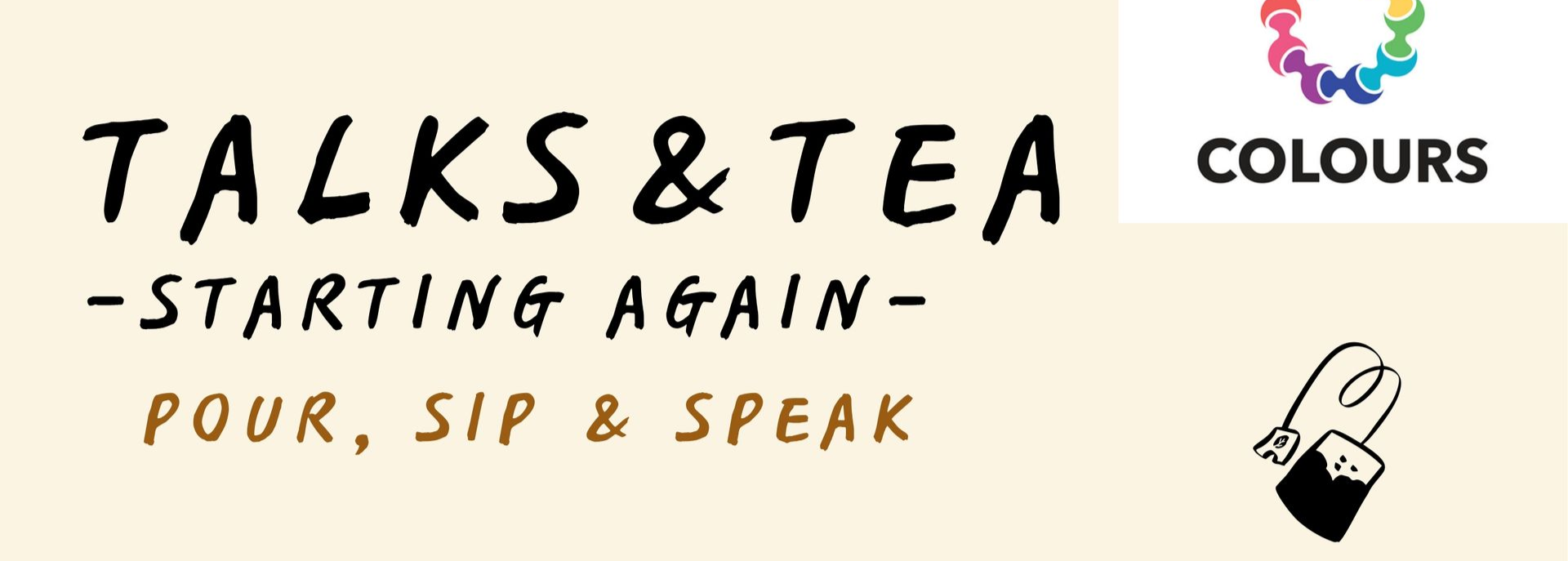
The TALKS & TEA afternoons are starting again! Next week on Tuesday we invite YOU to a cozy tea afternoon with activities to learn new Latvian words and to connect with local students! This time we will talk about festivals and celebrations we have in Latvia but, of course, we are also excited to hear about the festivals that you celebrate! Everybody is welcome to join! Where & when? Date: 3rd March 2026 Time: 17:00 Place: D103 We are looking forward to seeing you and your friends!
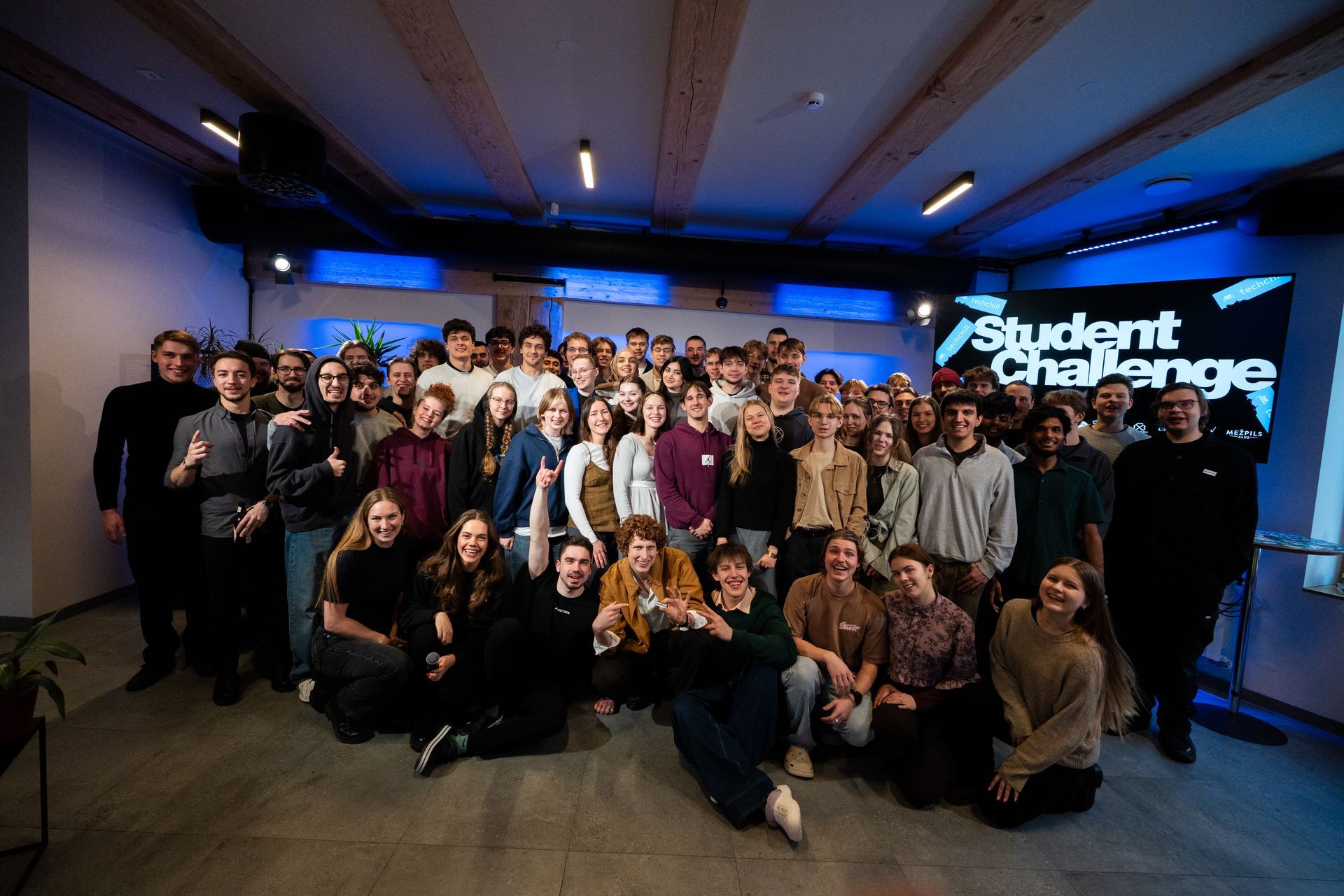
Last weekend, the TechChill Student Challenge 2026 took place in Riga, bringing together motivated students to experience the fast-paced world of startups. We are proud that 16 students from Ventspils University of Applied Sciences participated in the 24-hour hackathon, while three students from the Start-up Management programme were part of the organizing team, contributing to the successful delivery of the event. During the challenge, participants formed teams, developed business ideas, validated their concepts, and presented their solutions to a professional jury, all within just 24 hours. Hackathons provide a valuable opportunity for students to apply their knowledge in practice, strengthen teamwork and problem-solving skills, and develop an entrepreneurial mindset. The jury consisted of industry representatives: Luīze Dārta Sietiņa (TechChill), Āris Brenčis (NGL Ventures), Velma Linko (Junction), Lev Bass (Hukt AI), and Sigvards Krongorns (Verge HealthTech Fund). Their expertise provided valuable feedback and real-world insight into the startup ecosystem. Among the participants, 4th year Start-up Management student Kate Liepa and her team achieved 2nd place, receiving tickets to Latitude59. You can read her reflections on the experience here: https://www.linkedin.com/posts/kate-liepa-77168b24b_techchill-student-challenge-has-come-to-ugcPost-7431977095171371009-OA0U We are proud of our students for their initiative, engagement, and strong representation of the university.
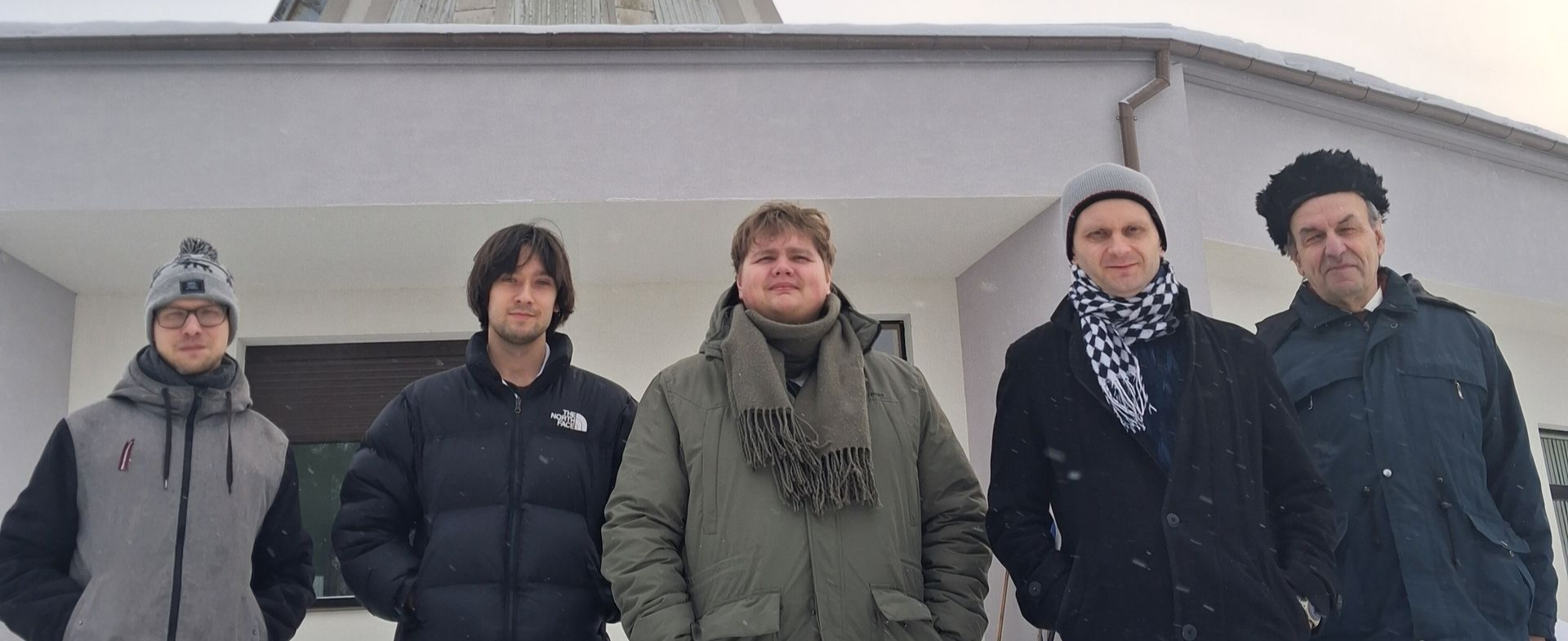
As of January 2026, the Fundamental and Applied Research Programme of the Latvian Council of Science project No. lzp-2025/1-0065 “Multi-material Dust Astrochemistry (DACE)” has commenced. The research is being carried out by staff of the Astronomy and Astrophysics Department at the Engineering Research Institute “Ventspils International Radio Astronomy Centre” (VIRAC) of Ventspils University of Applied Sciences. The scientific significance of DACE lies in its novelty. It has long been known that within the Solar System and in the wider cosmic space of our Galaxy and beyond there exist tiny solid grains – interstellar dust. They have a varied chemical composition, albeit two classes of materials dominate: silicate minerals (rock) and carbon (soot). This diversity of dust is taken into account in several subfields of astrophysics, such as physics of the interstellar medium physics and cosmochemistry (the science of the origin of the compounds and elements that formed the Solar System). However, in astrochemistry – which studies molecular transformations in the interstellar medium – the varied composition of dust has so far been largely ignored. Nevertheless, it may be significant, as many important chemical transformations in space occur on dust grain surfaces. Within DACE, we will investigate how differences in interstellar dust materials – including temperature, surface adsorption (molecular sticking) properties, and other parameters – affect the chemical composition of interstellar nebulae. Starting in January, leading researchers J. Kalvāns and J. Freimanis began work on the DACE project, conducting preliminary studies as well as initial scientific and administrative planning and preparation. Full, coordinated, and active research began in February with the formal involvement of students. On February 18, the project’s opening seminar was held, during which two key research directions were defined: calculating temperatures for dust grains in interstellar clouds embedded in cosmic radiation fields, and adapting a new reaction database for astrochemical calculations. After the seminar, project participants visited VIRAC radio telescope complex in Irbene (see photo).
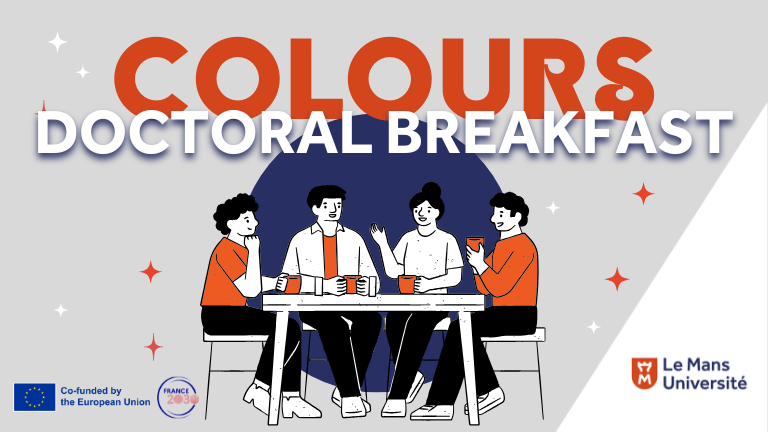
What is the PhD experience like elsewhere in Europe? The Doctoral Breakfast offers all PhD candidates from the universities of the COLOURS European Alliance a dedicated space to meet, share experiences, and broaden their perspectives on doctoral studies. This monthly online event provides a welcoming environment for informal discussions, the exchange of good practices, and the emergence of new ideas. The objective is promote and prepare international mobility experiences for teaching or training, to build connections, encourage dialogue, and foster peer-to-peer exchanges at the European level. It is also an opportunity to explore different approaches to doctoral studies, enrich one’s scientific reflection, and begin building a European research network from the start of an academic career. Upcoming sessions: Monday, 27 April – 9 to 10 :30 AM, CIeL meeting room and online https://short.univ-lemans.fr/DoctoralBreakfast-27april Friday, 29 May – 9 to 10 :30 AM, CIeL meeting room and online https://short.univ-lemans.fr/DoctoralBreakfast-29may

Offshore wind energy, green hydrogen production, sustainable maritime transport, smart port infrastructure, and marine biotechnology are increasingly recognised as key pillars of the sustainable blue economy in the Baltic Sea region, shaping its long-term environmental resilience, energy independence, and economic transformation. At the first technical workshop of the project Marine Technology Excellence Hub for Sustainable Blue Economy in the Baltics (MarTe) , held at Ventspils University of Applied Sciences (VUAS), researchers demonstrated how such ambitions depend on advanced physical modelling and simulation tools that bridge research and industrial implementation. The workshop, titled “ Physical Modelling for Blue and Green Transitions: Deep-Tech Tools from Lab to Market ”, brought together experts from VUAS, Riga Technical University, the University of Latvia, the UL Institute of Solid State Physics, Latvia University of Life Sciences and Technologies, Tallinn University, and the University of Tartu. Physical Modelling as a Development Engine A central theme of the event was the role of numerical simulation in accelerating technological development. Using tools such as SOLIDWORKS, COMSOL Multiphysics, OpenFOAM, and other advanced platforms, engineers can analyse structural behaviour, fluid dynamics, heat transfer, electromagnetics, and multiphysics interactions before building physical prototypes. “MarTe connects academic staff in Latvia and Estonia with industry, public administration and funding organisations to jointly develop innovation related to the Baltic Sea, coastal regions and ports,” explained VUAS researcher Vladislavs Bezrukovs. “We focus on science-intensive deep-tech solutions that support the green transition and digitalisation, including offshore renewable energy systems, green hydrogen technologies, maritime decarbonisation, smart port infrastructure, environmental monitoring, and bio- and hydro-technologies tailored for the Baltic Sea region.” Open-Source and Commercial Tools in Practice Sabīne Upnere (Riga Technical University) demonstrated applications of the open-source computational fluid dynamics toolkit OpenFOAM, highlighting its importance for small and medium enterprises due to the absence of costly licences. She showed how complex wind and water flow phenomena can be modelled in maritime contexts, including structural interaction and thermal processes. Normunds Jēkabsons (University of Latvia) shared long-term experience in modelling wind turbines, vibration, heat transfer, and industrial flow systems, emphasising the strategic value of open-source tools for research flexibility and innovation capacity building. From the commercial software perspective, Martin Johansson and Alex K. Aaskilde (PLM Group Sverige AB) introduced the newest features in SOLIDWORKS, including AI-assisted design functionalities that automate optimisation and reduce development time. They also presented support programmes offering free licences for early-stage start-ups, lowering barriers to innovation. Modris Dobelis (Riga Technical University) demonstrated how SOLIDWORKS is integrated into engineering education and certification pathways, giving participants hands-on modelling opportunities and illustrating the direct link between academic training and industrial competence. Marina Konuhova (Institute of Solid State Physics, University of Latvia) demonstrated how multiphysics simulation in COMSOL enables the modelling of strongly coupled physical processes in liquid–hydrogen systems, including thermodynamic, fluid dynamic, and mechanical interactions relevant to renewable energy and industrial hydrogen applications. Her presentation illustrated how advanced numerical modelling supports optimisation of compression processes, improves system safety and efficiency, and reduces development risks at early design stages. Vladislavs Bezrukovs (VUAS) showcased the application of electromagnetic (EM) simulations in EMWorks for analysing field distribution, induced currents, and performance constraints in linear generator systems. The presentation emphasised how accurate modelling of complex geometries and realistic boundary conditions is essential for predicting electromagnetic behaviour, optimising generator efficiency, and ensuring reliable operation in demanding engineering environments. Modelling for Safety, Environment and Green Transition Kristjan Tabri (Tallinn University of Technology) presented a comprehensive numerical reconstruction of the MS Estonia ferry disaster. His work illustrated how structural modelling and load simulations can deepen understanding of ship failures and contribute to maritime safety standards. Environmental forecasting was addressed by Uldis Bethers and Tija Sīle (University of Latvia). They presented modelling systems that predict wind, wave, and hydrodynamic conditions without direct measurement, supporting port operations and coastal risk management. From the industry perspective, Laura Apoga (LVR Flote Ltd) delivered an overview of maritime innovation within Latvia’s fleet modernisation efforts. She presented examples of hybrid vessel implementation, operational optimisation, and collaborative models between public institutions and industry partners. The talk highlighted practical pathways for introducing greener propulsion systems and improving coastal support services. Andrejs Zvaigzne (Riga Technical University) showcased the development of zero-emission hydrogen fuel cell fishing vessels, discussing technical integration and regulatory challenges for decarbonising Baltic maritime transport. Andrejs Krauklis (Latvia University of Life Sciences and Technologies) discussed modelling of hydrothermal ageing and polymer degradation, critical for assessing long-term material reliability and environmental pollution risks. Aleksejs Zolotarjovs (Institute of Solid State Physics, University of Latvia) presented the Spectromarine case study – a successful example of bringing laboratory-developed water monitoring technologies to market through strategic niche positioning. From Digital Design to Sustainable Blue Economy Across all presentations, one message was clear: physical modelling is not an auxiliary tool but a core driver of innovation. By combining structural simulations, hydrodynamics, energy systems modelling, and environmental forecasting, researchers can move efficiently from theoretical concepts to industrial prototypes. The workshop, which was attended by more than 50 participants both in person and remotely, demonstrated how simulation technologies underpin the transition to a sustainable blue economy in the Baltic region – enabling safer ships, greener propulsion systems, optimised port operations, and advanced marine materials. Recorded presentations from the MarTe technical workshop are available on YouTube allowing a broader audience to access the knowledge shared during the event. MarTe continues to strengthen collaboration between Latvia and Estonia, aligning academic expertise with industry needs and supporting the development of deep-tech solutions for the Baltic Sea region. MarTe project: Marine technology excellence hub for sustainable blue economy in Baltics (European Commission – Horizon Europe, HORIZON-WIDERA-2023-ACCESS-07-01. Nr. 101186498.

On January 16 within the framework of the State Research Programme of Ventspils University of Applied Sciences, Professor Una Libkovska, within the framework of the State Research Programme project "Development of evidence-based solutions for the effective improvement of professional competence of adults and assessment of the transfer of its results to practice in Latvia" (VPP-IZM-Education-2023/4-0001), participated in a meeting with entrepreneurs organized by the State Education Development Agency and the Ventspils State City Education Board on opportunities and challenges for adult learning. During the meeting, the opportunities offered by the skills management platform STARS for adult continuing education and professional upskilling were discussed, with a particular focus on the European Union projects "Training for Workers" and "Digital Skills for Experts". The discussions emphasize the importance of employers in providing support to employees in the process of starting training, as well as the need to establish purposeful cooperation between entrepreneurs, local government and educational institutions. VIAA's Department of Adult Education presented the learning opportunities offered by the STARS platform, as well as the necessary support for employed adults to start their studies and the role of the municipality in providing this support. In the second part of the event, meetings were held with municipal specialists and adult education organizers, representatives of youth and cultural work and other interested parties. The discussion discussed ways to strengthen cooperation in adult education, as well as identifying the necessary support from VIAA in reaching out to adults and motivating them to engage in learning. The event brought together more than 20 representatives of business and institutions of Ventspils municipality, who actively participated in discussions, shared their experience and expressed proposals for improving the adult education offer. The meeting reaffirmed that coordinated and targeted cooperation between state institutions, local governments, educational institutions and employers is an essential prerequisite for the effective development of adult skills, strengthening competitiveness and sustainable employment.

